Food Storage
10 Foods To NEVER Store Together
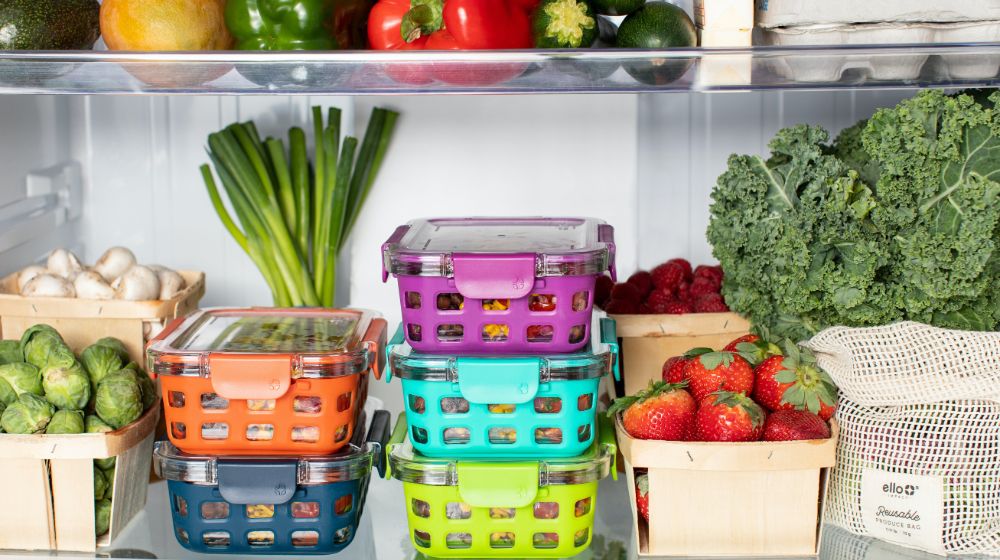
Storing food, especially fresh fruits and vegetables, is often equated simply with putting them all in one fruit bowl or together in the fridge. However, there are actually some foods that you should never store next to one another. Here are some of them.
RELATED: Survival Food Storage | 4 Methods Of Maintaining A Solid Food Supply
10 Ethylene-Producing and Ethylene-Sensitive Foods That Should Never Be Together
1. Apples: Ethylene-Producing
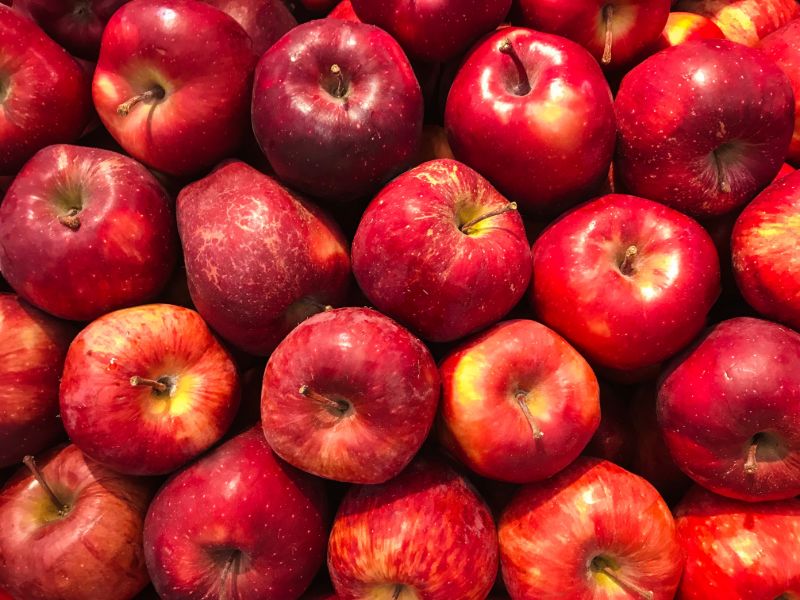
One of the main considerations to make when storing food is ethylene production and sensitivity. Ethylene is simply a gas hormone that certain fruits and vegetables emit when they ripen. Typically, fruits are the ones that produce ethylene more so than vegetables.
Because of this gas hormone, some fresh foods simply cannot be placed next to one another. In particular, ethylene-producing crops should be kept away from the ethylene-sensitive ones. One of the most common examples of ethylene-producing produce are apples.
In general, apples should be kept away from other produce. In fact, it may be best to keep them in a separate bowl by themselves at the center of the table. This is unless you are trying to ripen other fruits like persimmon or avocado.
Ethylene affects apples differently depending on when they were harvested. In particular, the gas hormone causes the skin of the apples to scald and turn brown if they were harvested before reaching their peak.
Apples can also be kept in your pantry for as long as four weeks, in your refrigerator for six weeks, and in your freezer for eight months.
2. Asparagus: Ethylene-Sensitive
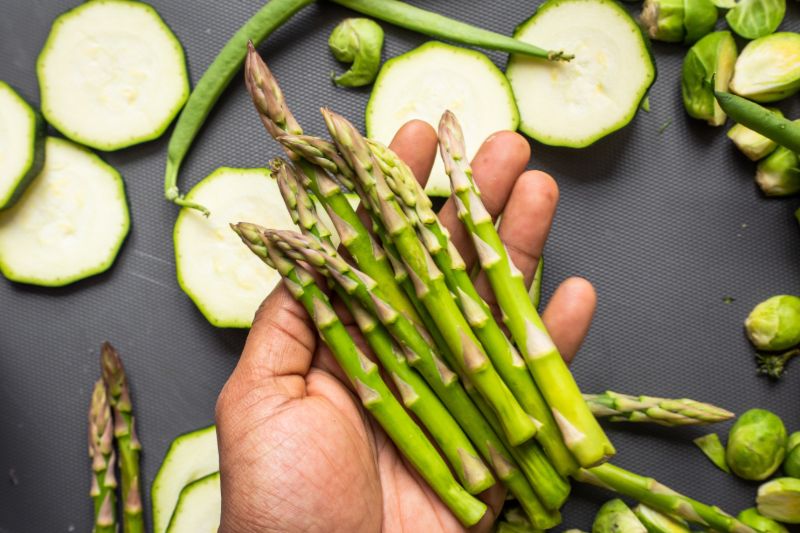
Ethylene tends to accelerate the lignification or the “toughening” of asparagus spears. Worse, it can even turn the vegetable yellow.
Make sure to store asparagus inside your refrigerator. It will last for three to four days in here. If kept in the freezer, it can last for as long as 5 months.
3. Avocados: Ethylene-Producing
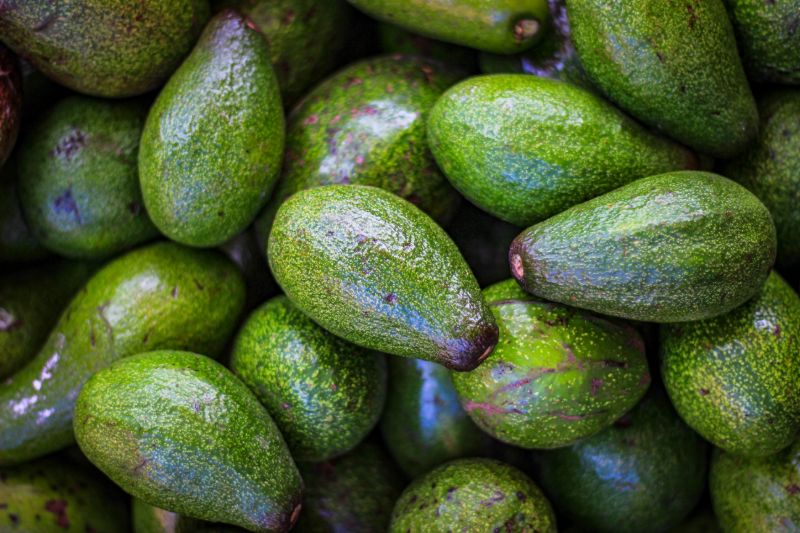
Because avocados do not ripen on the tree, picking them at the perfect time can be quite difficult. It begins to produce ethylene once you pluck it from the tree. The amount of ethylene in produces only continues to increase as the avocado ripens.
An avocado is considered ripe when it already feels tender. You might also notice that the skin darkens as it ripens. When kept in the refrigerator, they typically last for three to four days. If they are underripe, you can store them next to ethylene-producing fruits like apples to promote ripening.
4. Broccoli: Ethylene-Sensitive
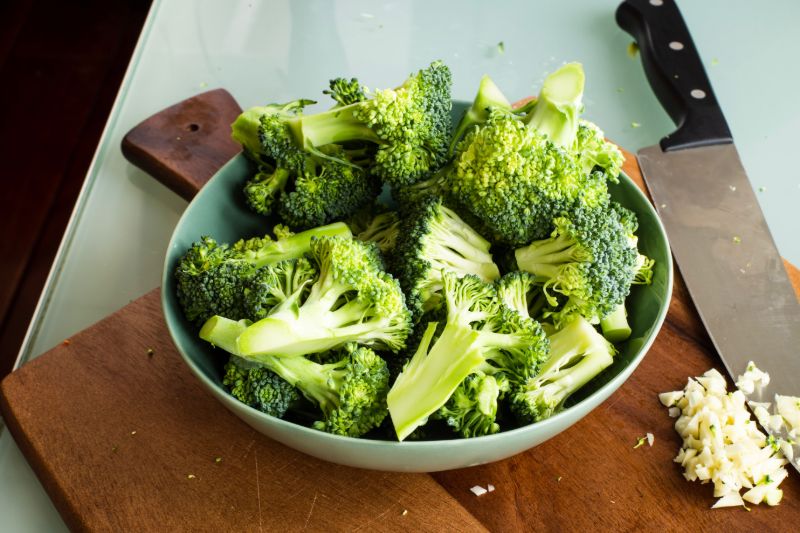
Exposing broccoli to ethylene-producing fruits and vegetables can reduce its shelf life by as much as 50 percent. This is a big deal considering that they only last between three to five days when kept in the refrigerator.
When exposed to ethylene-producing fruits and vegetables, the florets will begin to yellow. Once cooked, you might also notice that the flavor is more bitter.
Inside your freezer, broccoli can last for as long as 10 months to a year. When it comes to storing this particular vegetable, your best bet may be to keep them in the freezer.
5. Bananas: Ethylene-Producing
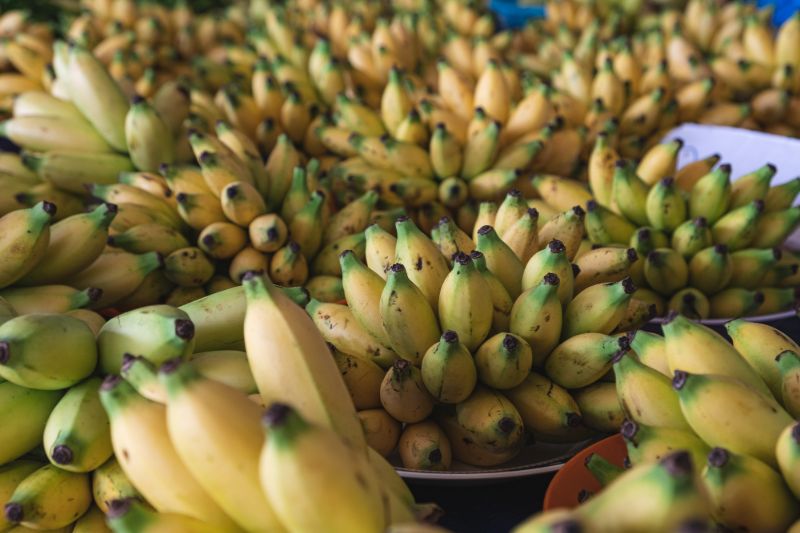
Banana hooks may be great for showing off your bananas in their best light, but it is also a sure-fire way of getting them to ripen all at the same time. This means you have about two days where you're either eating bananas left and right or you're throwing them out one after the other.
The solution? Break the bunch up. Keep some of them in a fruit bowl on your kitchen counter and allow them to ripen. Meanwhile, store some in the refrigerator to delay the ripening process.
Because ethylene from bananas comes from the stem, you can also keep them fresh by wrapping the ethylene-releasing part in plastic wrap. For these fruits, it is particularly important to limit their carbon dioxide exposure to delay the release of the gas hormone.
Once bananas reach your preferred level of ripeness, they will only last about three days inside the refrigerator. In the freezer, they can last for up to three months.
If worse comes to worst and you end up having spotted bananas, you can always use them in making banana bread. Toss them in the freezer and you have a quick DIY banana “ice cream.”
RELATED: 5 Methods For Preserving Meats For Long Term Food Storage
6. Brussels Sprouts: Ethylene-Sensitive
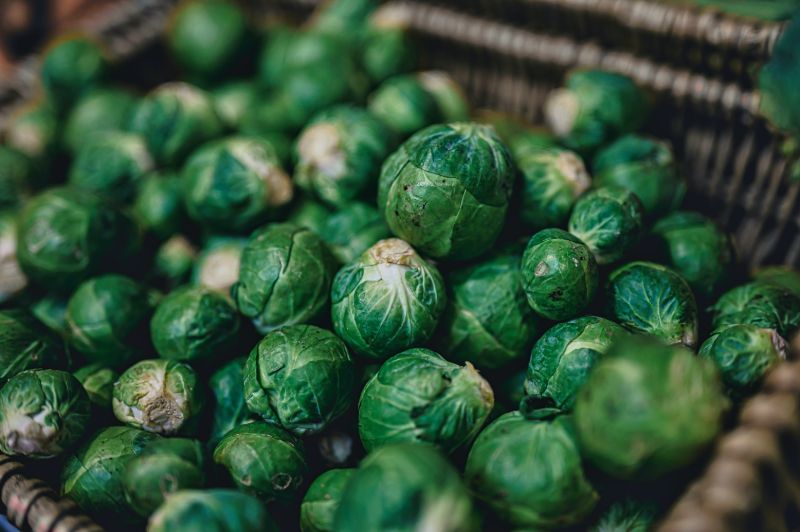
Brussels sprouts, which also belong to the same family as cabbages, do produce a small amount of ethylene. However, they are also extremely sensitive to the gas hormone. Once exposed, the vegetable starts to become yellow and its leaves begin to fall off as well.
Make sure to store these vegetables separately. Just like broccoli, these typically have a shelf life of three to five days when placed inside a refrigerator, and 10-12 months when stored inside the freezer.
7. Honeydew: Ethylene-Producing
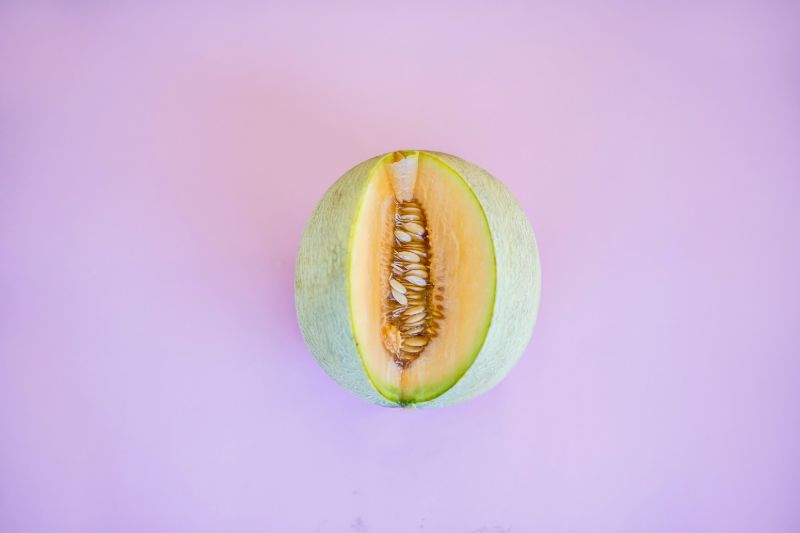
Some melons are ethylene-producing, while some are ethylene-sensitive. Honeydew is one example of the former.
Honeydew ripens at a slower pace before it is cut. Once the melon is sliced, its production of ethylene starts to increase.
Melons can be left in the pantry for seven days. Once you feel that it is tender, then you will know that the fruit is ripe. In the refrigerator, melons can last up to two weeks if left unopened. Sliced, the melons will last up to four days.
You can also leave them in the freezer where they'll last for up to one month.
8. Carrots: Ethylene-Sensitive
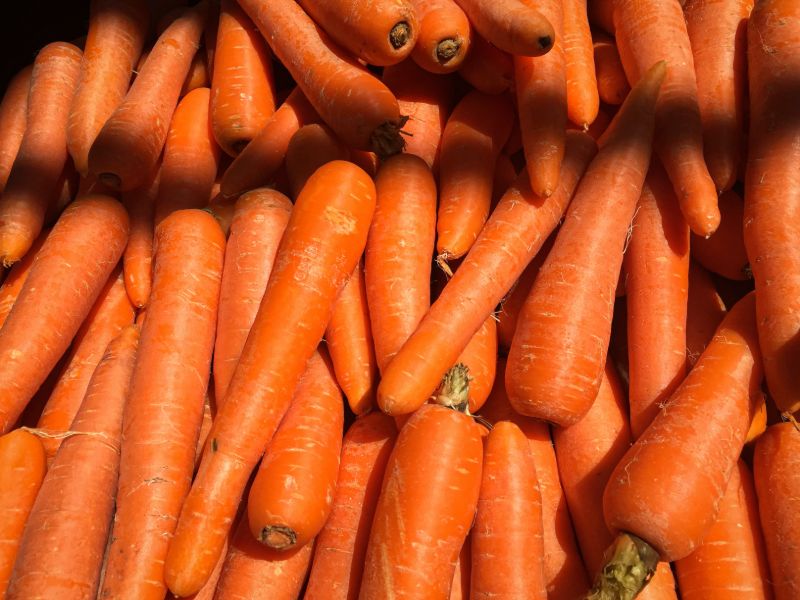
Most people have this idea that carrots can last a long time in storage. When stored inside the refrigerator, this may be true; They can last for up to three weeks. When exposed to ethylene, however, the bitter flavor can start to set in.
When storing food such as carrots, yams, beets, kolhrabi, onions, and other root vegetables, make sure to keep them away from ethylene-producing food. This will help them maintain the nutrients that they absorb from the soil.
Ideally, storing them in a root cellar is the best choice. If that's not available, you can also place them inside a plastic or paper bag before placing them inside your refrigerator.
9. Mangos: Ethylene-Producing
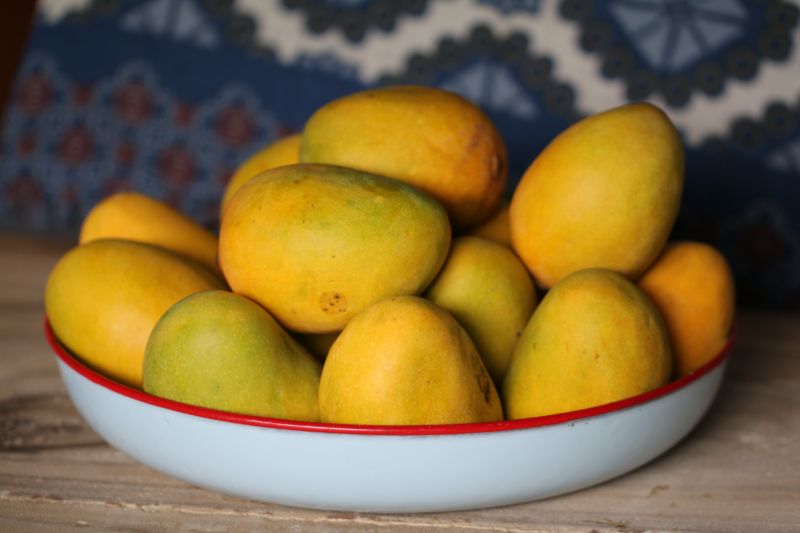
Mangos produce less ethylene compared to other fruits. However, the ethylene that they do produce is still enough to affect other fruits and vegetables you may have.
You can leave them in your pantry for up to five days, and in your refrigerator for up to a week. If left in the freezer, these fruits will last for up to eight months.
10. Cauliflower
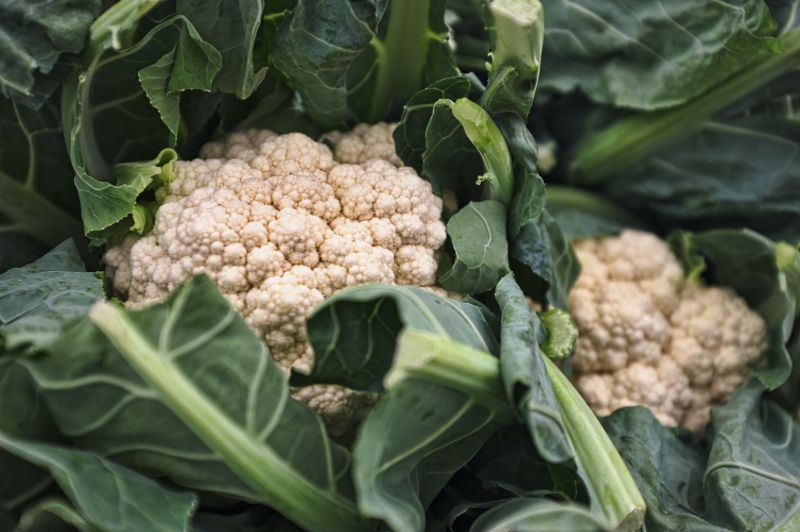
Much like broccoli, cauliflower is also extremely sensitive to ethylene. In the presence of this gas hormone, the fruit can start to turn yellow, and its leaves will start to fall off the stalks.
Keep them away from ethylene-producing foods like melons and apples. They can last for up to five days in your refrigerator, and up to a year in your freezer.
Are you storing food the right way? Check out this list of foods you've probably been storing wrong courtesy of Bright Side:
When it comes to storing food, knowing which foods go well with others and which ones don't is crucial to keeping them fresh. Make sure you keep ethylene-producing foods away from those that are sensitive to the gas hormone to ensure that they remain as delicious as if they were picked yesterday.
[poll id=”66″]
Do you have other questions about storing food the right way? Ask us in the comments section below!
Up Next:
- 6 Threats To Your Food Storage Cache And Ways To Protect It
- 9 “Crazy Simple” Tips To Build Your Emergency Food Supply
- The 6 “Unbreakable Laws Of Survival” You Need To Know
Calling all preppers, craftsmen, bushmasters, outdoorsmen, and all-around skilled people, Survival Life needs YOU! Click here if you want to write for us.
Don’t forget to stay connected with us on Facebook, Twitter, Pinterest, and Instagram!
-

 Paracord Projects1 year ago
Paracord Projects1 year agoParacord Projects | 36 Cool Paracord Ideas For Your Paracord Survival Projects
-

 Paracord Projects1 year ago
Paracord Projects1 year agoHow To Make Paracord Survival Bracelets | DIY Survival Prepping
-

 Medical Care1 year ago
Medical Care1 year ago21 Home Remedies For Toothache Pain Relief
-

 Knife Laws1 year ago
Knife Laws1 year agoAre Switchblades Legal? Knife Laws By State
-

 Do It Yourself1 year ago
Do It Yourself1 year agoSurvival DIY: How To Melt Aluminum Cans For Casting







glasshole
June 30, 2021 at 11:04 AM
LOL at all the morons who store their food in plastic containers.
Glass or nothing.
r d nicholson
August 30, 2021 at 9:20 AM
what about vaccum packing. i vacum pack all my deer burger and keep it in the freezer.it is good for 5 years.
Gary Ahrens
September 1, 2021 at 1:35 PM
VITAMINS AND NUTRIENTS IN MILK DESTROYED IN BRIGHTLY LIGHTED DAIRY CASES
Information obtained from College of Agriculture & Life Sciences, U.W. Wisconsin
Article: light Induced Changes In Milk, JOURNAL OF FOOD PROTECTION. Vol 43 4/1980
Summary:
MILK IN TRANSLUCENT JUGS ARE SUBJECTED TO GREATER VITAMIN AND NUTRIENT LOSSES THAN MILK IN PAPER AND/OR DARK PACKAGING. [Urge retailers to dim their dairy cases by using yellow lighting or no direct lighting at all.]